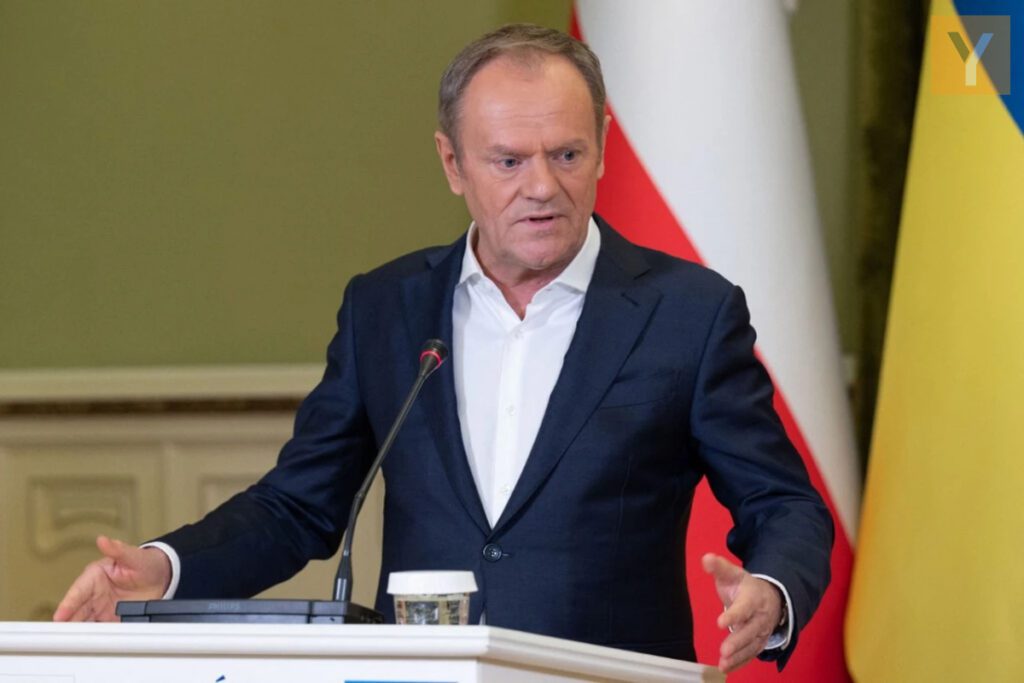
Polish Prime Minister Donald Tusk emphasized the European Union’s commitment, asserting that support would be extended regardless of Hungarian Prime Minister Viktor Orban’s objections. Tusk’s remarks came ahead of crucial EU discussions regarding providing aid to Ukraine, highlighting the urgency of addressing the humanitarian crisis and stabilizing the region.
Special Summit Convened Amidst Ukraine Conflict
As the Ukraine conflict approaches its second anniversary, the European Union is set to convene a special summit on Thursday to address the impasse surrounding the provision of aid to the war-torn nation. The summit underscores the EU’s recognition of the pressing need to find a resolution amidst escalating tensions and humanitarian concerns.
During a press briefing, Prime Minister Tusk expressed unwavering determination to find a solution to support Ukraine, emphasizing the EU’s solidarity with the country in its time of need. Tusk’s assurance reflects the collective effort within the EU to overcome obstacles and deliver meaningful assistance to Ukraine, irrespective of internal disagreements.
Populist Leaders’ Opposition to Ukraine Aid
The conflict in Ukraine has sparked opposition from populist leaders across Europe, with figures in Slovakia and Hungary voicing scepticism and criticism regarding the allocation of aid to Kyiv. While concerns over financial commitments and geopolitical implications persist, Hungarian Prime Minister Viktor Orban’s veto of the latest EU aid package for Ukraine has intensified tensions within the bloc.
Prime Minister Tusk did not mince words in his critique of Orban’s position, labelling him as the sole openly anti-Ukrainian leader within the EU. Tusk’s condemnation underscores the divide within the bloc regarding the approach to the Ukraine crisis, with differing perspectives on the geopolitical ramifications and strategic interests at play.
[adinserter name="Three"]EU’s Contemplation of Financial Measures Against Hungary
Amidst Hungary’s persistent opposition, EU officials have reportedly drafted a plan to exert economic pressure on Budapest to relent in its stance against aid to Ukraine. The leaked document outlines a strategy to leverage Hungary’s financial vulnerabilities to compel compliance, signalling a significant escalation in the standoff between the EU and its member state.
[adinserter name="One"]Despite the mounting pressure from Brussels, Orban’s government remains defiant, reiterating its refusal to yield to external coercion and rejecting any linkage between support for Ukraine and access to EU funds. Hungary’s steadfast stance poses a challenge to EU unity. It raises questions about the bloc’s ability to navigate internal dissent on critical issues.
[adinserter name="Four"]The EU’s contemplation of drastic measures, including revoking Hungary’s voting rights, underscores the severity of the crisis and the urgency of finding a resolution. However, the feasibility of such actions remains to be determined, given the need for unanimous support among member states and the potential ramifications for EU cohesion.
[adinserter name="Two"]As negotiations continue, Hungary emphasizes preserving EU unity while advocating for its national interests. Despite the political tensions and divergent viewpoints within the bloc, there remains a shared commitment to finding a diplomatic solution to the Ukraine crisis and addressing the broader implications for European security and stability.
A file seen by the FT outlines a confidential plan by Brussels to shut off all EU funding to Budapest in order to spark a run on Hungary's currency and drive a collapse in investor confidence https://t.co/QRQWzBMvdZ pic.twitter.com/cjiB1EtekC
— Financial Times (@FT) January 29, 2024Preference for Separate Ukraine Fund
In the event of failed compromise efforts, Hungary has proposed the establishment of a separate Ukraine fund outside the EU budget, signaling its willingness to contribute to Ukraine’s needs while maintaining autonomy in its decision-making. The proposal reflects Hungary’s desire to uphold its principles while seeking a pragmatic approach to addressing the humanitarian crisis in Ukraine.
[adinserter name="Five"]Frequently Asked Questions (FAQs)
-
Why is Hungary Vetoing EU Aid to Ukraine?
Hungary, under the leadership of Prime Minister Viktor Orban, has vetoed EU aid to Ukraine due to concerns and disagreements over the allocation of funds and the broader geopolitical implications of supporting Kyiv. Orban’s government maintains that Hungary’s objections are rooted in its national interests and principles.
-
What Are the Implications of Hungary’s Obstruction for EU Unity?
Hungary’s refusal to support EU aid to Ukraine has strained relations within the bloc and raised questions about the cohesion of EU member states on critical foreign policy issues. The standoff highlights the challenges of balancing national interests with collective solidarity within the EU framework.
-
How Is the EU Addressing Hungary’s Obstruction?
The EU is exploring various measures to address Hungary’s obstruction, including economic pressure and diplomatic negotiations. While efforts to find a compromise continue, the EU remains committed to supporting Ukraine and resolving the impasse through diplomatic means.






